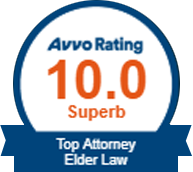A trust is a separate legal entity whose “rules of the road” are governed by a trust document or trust agreement. A trust is managed by a trustee, who can be a family member or an independent person or financial institution.
People create trusts for Medicaid planning purposes for several reasons:
- If non-nursing home care is needed, the five-year look-back rule doesn’t apply. In that case, assets put in an irrevocable trust are preserved. It may well be that by the time a person getting home health care needs to go into a nursing home, the five-year look-back period has elapsed.
- Medicaid can recover payments it has made after a person dies from assets left in an estate. However, it can only recover from assets that pass-through probate. Medicaid liens generally cannot be placed on jointly held property and property passing via beneficiary designation forms (e.g., bank accounts, insurance and IRAs or retirement accounts) or from a trust.
Creating Trusts
A trust is a separate legal entity whose “rules of the road” are governed by a trust document or trust agreement. A trust is managed by a trustee, who can be a family member or an independent person or financial institution. Apart from Medicaid planning, there are many advantages to making a gift in trust, as opposed to outright to beneficiaries, such as:
- The trustee has oversight on how the funds are managed and used.
- Disputes among siblings and/or potential overreaching by family members can be minimized.
- The trust agreement can be drafted to ensure that things go the way you want, providing more flexibility, even as you part with control.
- You can garner income and/or estate tax advantages.
- In Medicaid planning, gifts must be “irrevocable” and outside the five-year look-back rule to be deemed not owned by the applicant.
Irrevocable Trusts
An irrevocable trust is the most common type of trust used to protect certain assets for the family by keeping those assets from being counted as a “resource” for Medicaid purposes. Once the five-year look-back period has elapsed, a trust continues to carry out your dispositive wishes and perhaps tax plans. If you need Medicaid within the five years, you may need to look to other funds to pay out of pocket for health care.
Typically, these trusts distribute all income to the beneficiary. If the only asset of a trust is a home that does not produce income, the trust can be drafted so that the owner can live in the home if he/she wants and tax benefits such as STAR can be preserved. Beneficiaries can also to receive a “step up” in the property’s basis to its value on the Grantor’s date of death, which is a valuable tax benefit for appreciated property. It enables the built-in gain to avoid capital gains tax.


